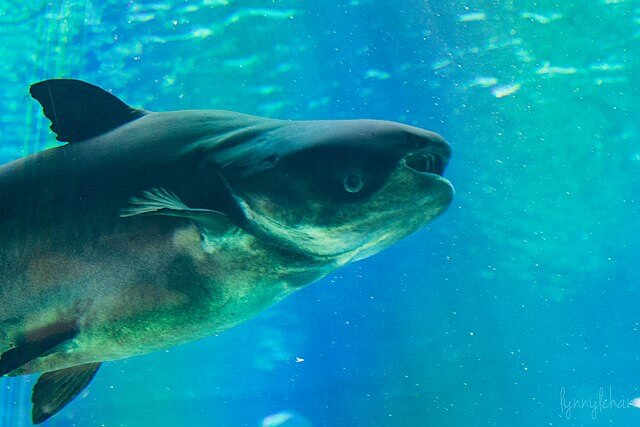
An expert assessment reveals that nearly 25% of the world’s freshwater fish face the threat of extinction due to a combination of global heating, overfishing, and pollution.
This alarming scenario encompasses a diverse array of species, from Kenya’s large-toothed Lake Turkana robber to the Mekong giant catfish in south-east Asia, marking the first comprehensive evaluation of freshwater fish by the International Union for Conservation of Nature (IUCN) red list.
Climate change plays a significant role, with almost 20% of all endangered freshwater species being impacted by its effects. Factors such as falling water levels, changing seasons, and the intrusion of seawater into rivers contribute to the vulnerability of these species. Out of 14,898 assessed species, a staggering 3,086 are identified as at-risk, highlighting the urgency of conservation efforts.
In addition to freshwater fish, other species are facing escalating threats, as indicated by scientific assessments. Mahogany, Atlantic salmon, and green turtles are among those in jeopardy. However, a positive development emerges with the saiga antelope, which has transitioned from critically endangered to near threatened. This transformation is attributed to a remarkable 1,100% increase in population over seven years, primarily in Kazakhstan.
The successful reintroduction of the scimitar-horned oryx in Chad is another conservation triumph. Once abundant across the Sahel, this mammal vanished in the 1990s due to overhunting. Through captive breeding and reintroduction efforts, the population has rebounded to 140 mature animals in the Ouadi Rimé-Ouadi Achim faunal reserve in Chad. Despite this positive trend, the oryx remains vulnerable to extinction, with climate change posing an additional threat.
“The update to the IUCN red list shows the power of coordinated local, national and international conservation efforts. Success stories such as that of the scimitar horned oryx show that conservation works. To ensure the results of conservation action are durable, we need to decisively tackle the interlinked climate and biodiversity crises,” said the IUCN president, Razan Al Mubarak.
Concerns also arise over big leaf mahogany, a highly sought-after plant commercially. Classified as endangered, its population has dwindled by 60% over the past 180 years due to unsustainable harvesting. The demand for mahogany wood, used in furniture, musical instruments, and decorations, has fuelled illegal logging across central and South America.
The Atlantic salmon faces a similar fate, transitioning from a species of least concern to near threatened on the IUCN red list. A 23% decline in the global population, coupled with disappearance from many UK rivers, reflects the impact of habitat loss, global heating, and dams impeding access to breeding sites. Hybridisation with farmed salmon further compromises their adaptability, while invasive Pacific pink salmon poses an additional threat in northern Europe.
“Freshwater fishes make up more than half of the world’s known fish species, an incomprehensible diversity given that freshwater ecosystems comprise only 1% of aquatic habitat. These diverse species are integral to the ecosystem, and vital to its resilience. This is essential to the billions of people who rely upon freshwater ecosystems, and the millions of people who rely on their fisheries,” said Kathy Hughes, co-chair of the IUCN species survival commission freshwater fish specialist group.
“Ensuring freshwater ecosystems are well managed, remain free-flowing with sufficient water, and good water quality is essential to stop species declines and maintain food security, livelihoods and economies in a climate resilient world,” she said.
Central south Pacific and east Pacific green turtles confront risks of extinction due to industrial and artisanal fishing, with their eggs being considered a delicacy in some countries. The detrimental effects of rising global temperatures on hatching success, combined with increased sea temperatures flooding nests, compound the challenges faced by these iconic marine creatures.
——————————————————————————
At Natural World Fund, we are passionate about stopping the decline in our wildlife.
The decline in our wildlife is shocking and frightening. Without much more support, many of the animals we know and love will continue in their decline towards extinction.
When you help to restore a patch of degraded land through rewilding to forests, meadows, or wetlands, you have a massive impact on the biodiversity at a local level. You give animals a home and food that they otherwise would not have had, and it has a positive snowball effect on the food chain.
We are convinced that this is much better for the UK than growing lots of fast-growing coniferous trees, solely to remove carbon, that don’t actually help our animals to thrive.
This is why we stand for restoring nature in the UK through responsible rewilding. For us, it is the right thing to do. Let’s do what’s right for nature!
Donate today at https://naturalworldfund.com/ and join in the solution!

